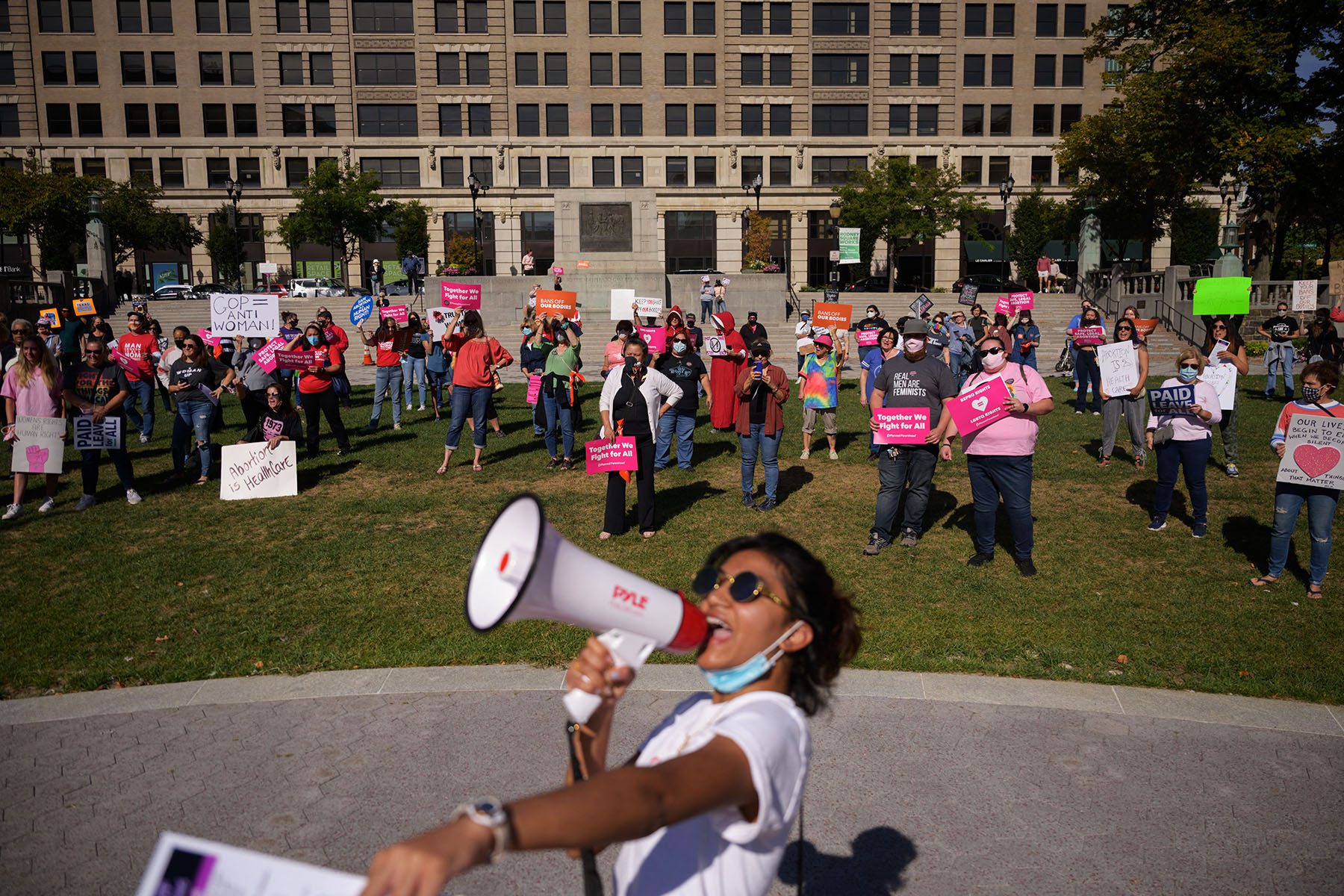A large majority of employees at the Guttmacher Institute — one of the nation’s largest reproductive health research organizations — declared their intent Monday to form a union, per a letter shared first with The 19th.
The push comes after months of low morale at the institute — and just as the Supreme Court is expected to issue a ruling that could weaken or overturn Roe v. Wade, the case that guaranteed the right to an abortion. In interviews with The 19th, Guttmacher employees argued the looming court decision strengthens their argument for a staff union.
The Guttmacher employees have joined with the Office and Professional Employees International Union and are asking Guttmacher’s managers to voluntarily recognize the union by Thursday. If that does not happen, they intend to file a petition with the National Labor Relations Board. Out of the 109 employees at the company, 61 are union eligible, per a count given to The 19th.
The institute, which supports abortion rights, is known for its research on areas including abortion, contraception and sexually transmitted infections, all of which is cited by publications across the political spectrum, including The 19th. Guttmacher is the largest organization of its type not affiliated with a university. But in the past year, it has been roiled by high staff turnover, much of which has been reported publicly. Employees have cited pay, benefit structure and limited opportunities for promotion as just some of the issues pushing workers out of the institute.
In the past 15 months, 37 employees have either left the organization or indicated that they plan to leave, according to the union organizers. Out of Guttmacher’s 11-person policy arm, 10 people have quit. Sixteen additional employees have left the institute’s research division — a figure the union estimates constitutes more than a quarter of the organization’s researchers.
“We’re looking to improve the workplace for all of us — from salaries … to ensuring there are paths for promotion to the need for conflict resolution processes to involving staff in decision-making,” said Cynthia Beavin, a senior research assistant who has worked at Guttmacher for four years. “Very little information about decisions is shared with staff, and all but one of the groups designed to support staff and help address issues in the workplace have been dissolved.”
“We want a union to secure the good benefits we already have, bring back processes that were working in the past, and come up with new solutions to our current issues,” she added.
The coming years will raise new and complex questions for abortion rights, especially if the Supreme Court opens the door for states to ban or further restrict access to the procedure. Guttmacher employees cited that context in their arguments for unionizing.
“What we’re talking about are people then being able to focus on the work itself and move ahead and really face all these challenges that are coming down the pike — being able to help provide research and analysis that supports what is happening in the states and potentially federally,” said Elizabeth Nash, who tracks state policy for the institute. Nash has worked there since 1999 and is the only person on her team not to have quit in the past 15 months. “This is about setting us up for the future.”
This is the first time in Guttmacher’s history that its employees have sought to unionize. The institute, which began as an offshoot of Planned Parenthood, has existed as an independent organization since 2007.
The effort comes as a wave of workers across employment sectors — including media, political campaigns and nonprofit staffers — have sought union representation. Notably, other reproductive health organizations, including Planned Parenthood, the National Abortion Federation and the National Women’s Law Center, have recently unionized.
Union organizers pointed to benefits, pay and promotion structures as some of the issues they hope to address.
Entry-level salaries often start in the mid $40,000 range, according to union organizers. New parents are granted 12 weeks of paid parental leave — about three months — and can take up to 14 more weeks unpaid. (UNICEF, the United Nations Children’s Fund, recommends families be given six months paid parental leave, or roughly 24 weeks.)
There is also little opportunity for promotion, Nash said, even if employees take on new work responsibilities, and no structure for merit-based pay raises. And the “COVID hours” the institute offered at the start of the pandemic — paid time off for those who contracted the virus or had to care for sick family members — have not been renewed since September.
“What people are looking for is a voice at the table,” Nash said. “People really feel that when we can work in collaboration with management, that’s the best way forward. Whether it’s on how the office works, to the content we produce, to the environment we’re working in. Because everything is hard right now.”







